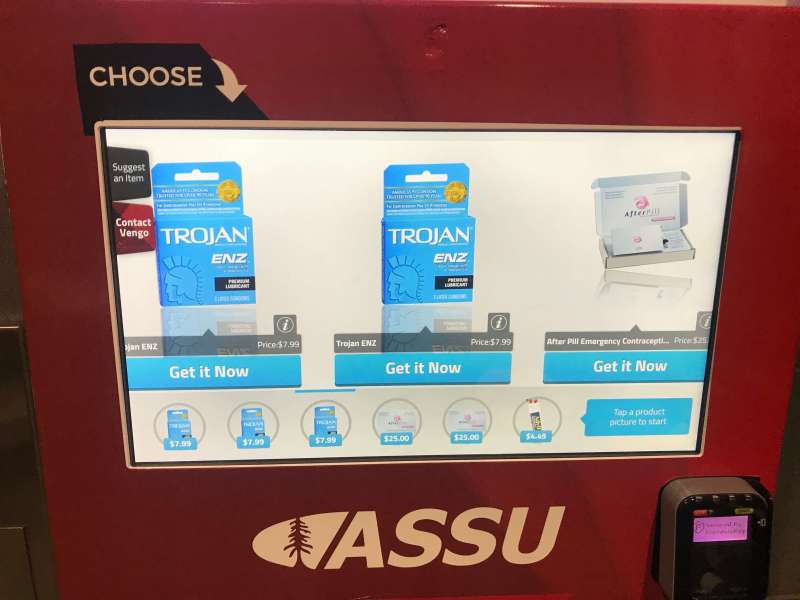In 2018, 329 units of AfterPill Emergency Contraceptive were purchased via a specialized vending machine last year, according to figures released by the Associated Students of Stanford University (ASSU). The measures were sold in an all-gender bathroom in Stanford’s Old Union building.
Also purchased last year were 123 Trojan ENZ 3-packs and 25 Advil Pockets. The machine originally also offered internal condoms, which were discontinued due to low usage.
Before the device was installed, students could only access emergency contraception on campus at Vaden Health Center, which has limited hours. Stanford Sexual Health Peer Resource Center (SHPRC) also offers students a $3 credit each quarter, which can be used to buy condoms and other products, during its own business hours.
Rachel Samuels ’17, who served as chief of staff on the 2016-17 ASSU Executive Cabinet, spearheaded the initiative to install the machine. With the support of the Office of Sexual Assault and Relationship Abuse Education and Response (SARA), the device was installed at the start of the 2017-18 school year, after more than two years of coordination with University administrators.
In an interview with The Daily, ASSU President Shanta Katipamula ’19 said the vending machine’s usage was “really exciting.”
“I think [the figures] are fantastic,” she said. “More and more people are becoming aware of it. ”
The initiative, she said, fills an unmet need for emergency contraception measures. She described the program as a supplement to Vaden, allowing students to acquire contraceptives at all hours.
“Clearly, it’s something that students really needed,” she said. “This fills a gap that existed previously.”
Katipamula hopes the program will continue to continue to expand. In an email to The Daily, Katipamula wrote that a similar vending machine would be installed in the Li Ka Shing Building “at the School of Medicine’s request.” She hopes, too, to install similar devices in residences for graduate students to serve a larger population.
“Having over 300 people access the emergency contraceptive alone is really, really impressive,” Katipamula said. “I think it really goes to validate all the work that Rachel Samuels and other folks put in to get this project off the ground.”
Contact Charlie Curnin at ccurnin ‘at’ stanford.edu and Tejas Athni at tathni ‘at’ stanford.edu.
